10 Phrases Socially Awkward People Say When They Feel Uncomfortable Talking To You
How to know if the connection is just not there.
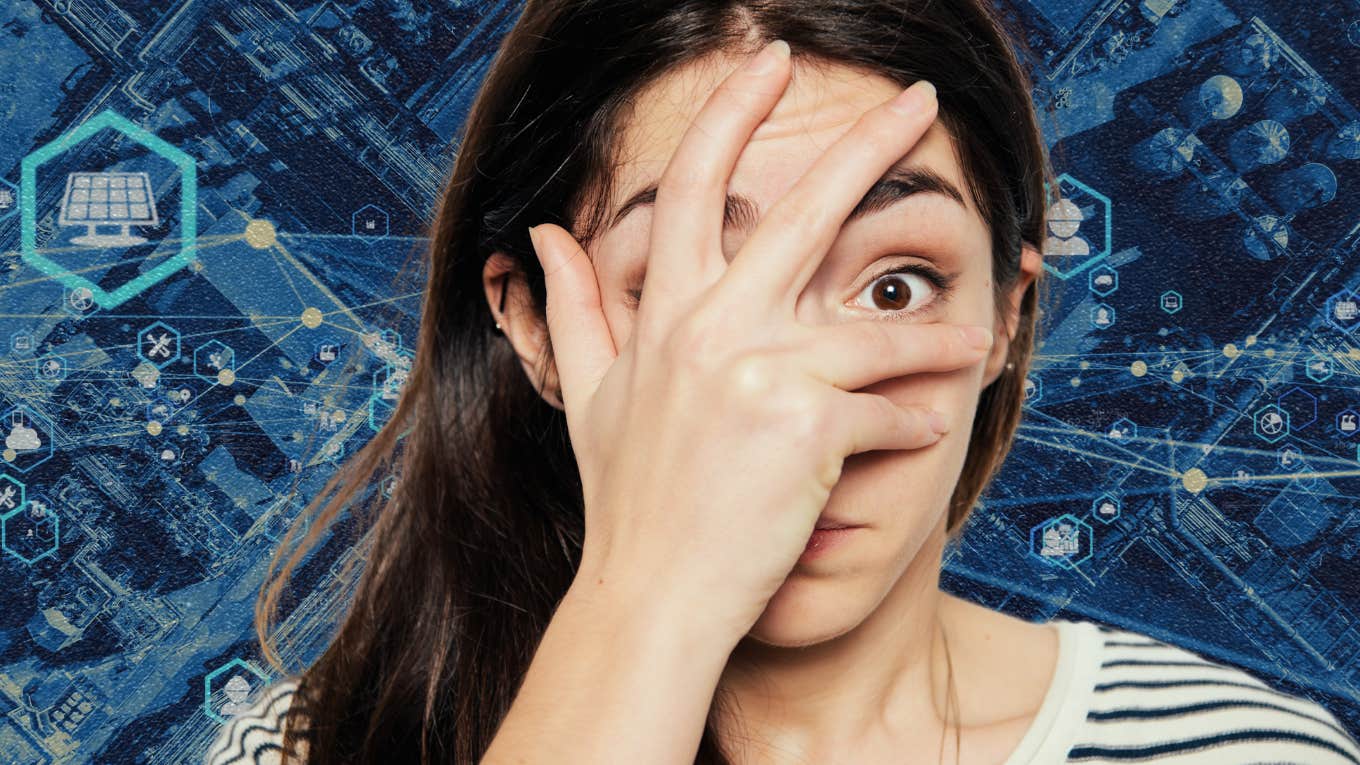 Mariia Slasna | Shutterstock | CanvaPro
Mariia Slasna | Shutterstock | CanvaPro Social anxiety disorder is defined by the Diagnostic and Statistical Manual of Mental Disorders as “A persistent fear of one or more social situations where embarrassment may occur and the fear or anxiety is out of proportion to the actual threat posed by the social situation.” The social situations that cause heightened anxiety often include public speaking, meeting new people, or being asked to share your ideas in a meeting.
While there is a difference between having extreme social anxiety and being socially awkward, people who experience social anxiety oftentimes perceive themselves as being socially awkward, which can increase their sense of embarrassment or nervousness. Engaging in conversations with people can be especially challenging for socially awkward people, who often struggle to express their thoughts.
Here are 10 phrases socially awkward people say when they feel uncomfortable talking to you:
1.‘I’m saying all the wrong things’
 Prostock-studio | Shutterstock
Prostock-studio | Shutterstock
A phrase that socially awkward people say when they feel uncomfortable talking to you is, “I’m saying all the wrong things.” This statement vocalizes their concern that they’re acting awkward around the person they’re speaking to. Socially awkward people might say this phrase when they doubt they're getting their point across. They might say this in the face of a minor conflict or disagreement, acknowledging their communication style isn’t apparent.
By saying the phrase “I’m saying all the wrong things,” socially awkward people express their worry that what they’re saying might be misinterpreted. The use of this phrase often indicates low self-confidence, especially when they’re trying to share a complex or sensitive opinion.
2.‘Sorry if I’m annoying’
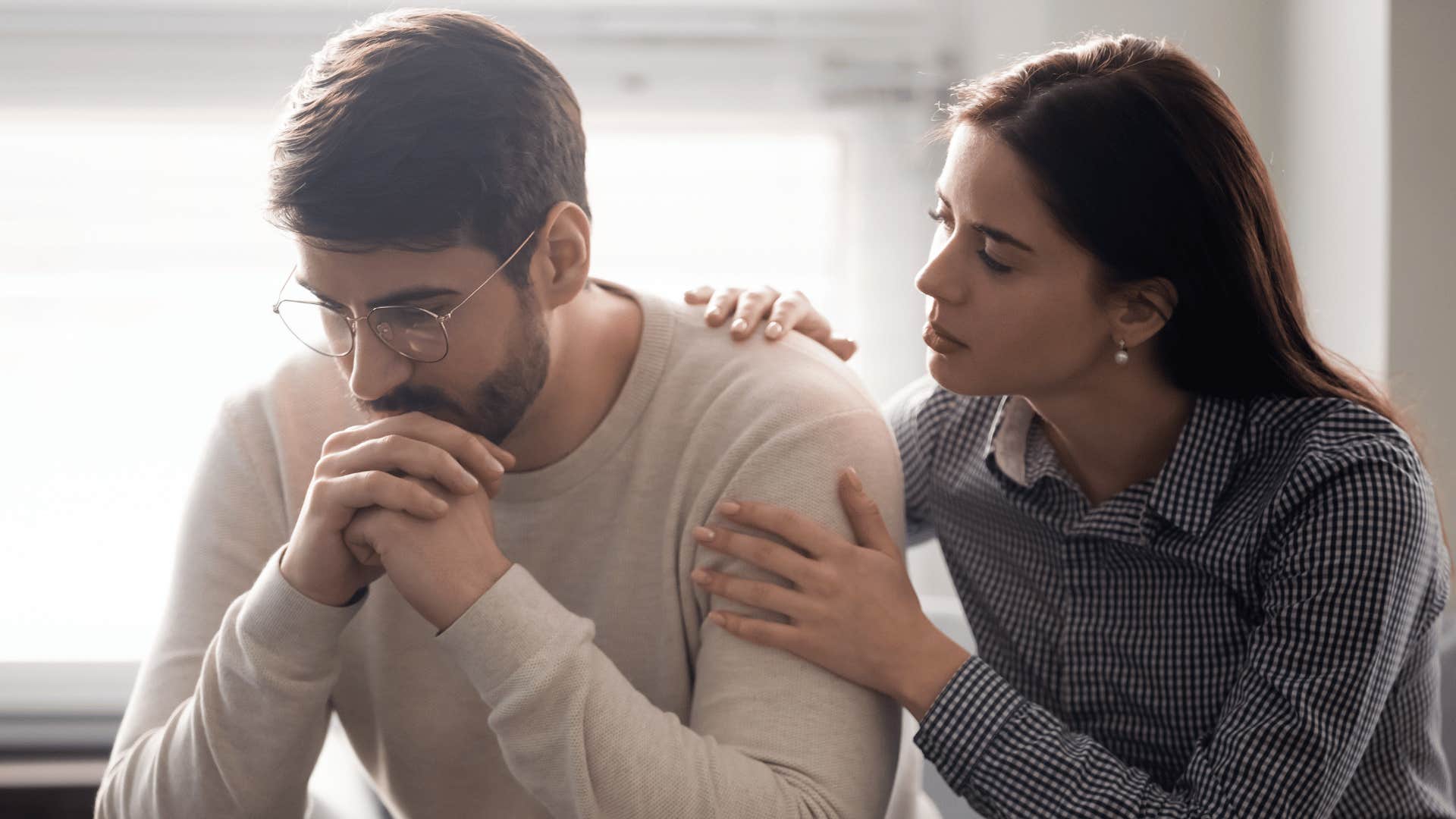 fizkes | Shutterstock
fizkes | Shutterstock
Another phrase that socially awkward people say when they feel uncomfortable talking to you is “Sorry if I’m annoying,” which they say to manage other people’s expectations. This kind of apology isn’t necessarily expressed because the person did something wrong, but rather, it’s an apology made out of fear that they’re bothering the person they’re talking to. This phrase functions as a way for socially awkward people to apologize for the fact that they’re taking up space.
Having a social anxiety disorder can be an underlying reason that someone is socially awkward when talking to other people. Social anxiety disorder typically presents itself in childhood or adolescence. The National Institute of Health noted that an adult with social anxiety disorder is up to 70% likely to have another anxiety disorder alongside their social anxiety.
The NIH made a clear distinction between being shy and having social anxiety, which can impede people’s daily functioning. Social anxiety can make it hard for a person to form relationships, meaning that they often have very few friends. As a result of not having many friends, they might not know how to interact in social situations, which means they say phrases like “Sorry if I’m annoying” when they feel uncomfortable talking to you.
3.‘Am I being weird?’
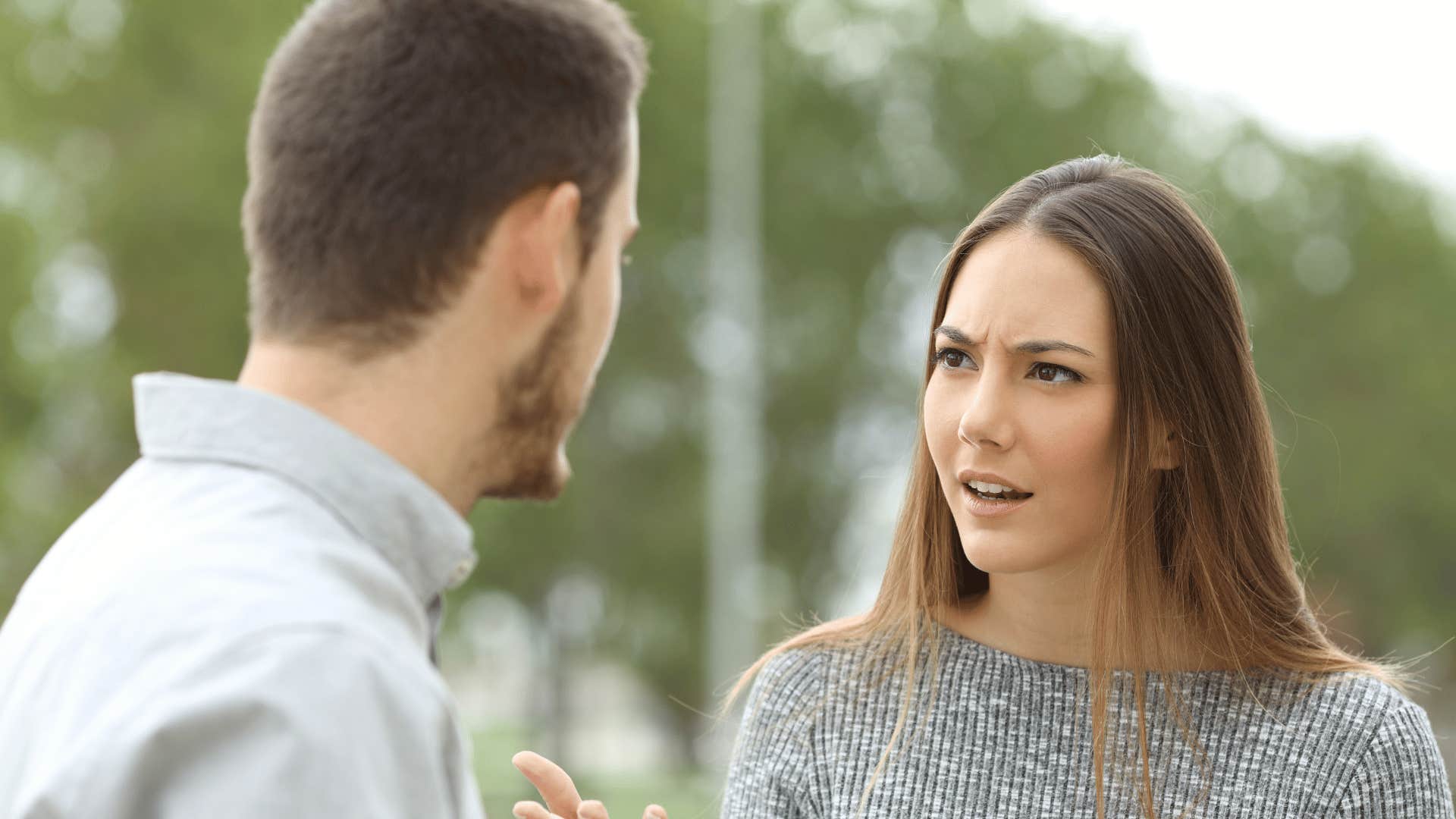 Antonio Guillem | Shutterstock
Antonio Guillem | Shutterstock
Socially awkward people might also ask whoever they’re talking to if they’re being weird. This question signifies that they feel uncomfortable talking to you and worried they’re making a poor impression during the conversation.
Social anxiety is the third most common mental health disorder, and 90% of cases develop before people turn 23 years old. Johanna Jarcho, a psychology and neuroscience professor at Temple University, focuses her research on how memory affects young, socially anxious people’s perception of themselves in social interactions.
“Memory is super malleable,” Jarcho explained. “If we can figure out the mechanisms that harness that malleability in a positive way in the context of therapy, this can be another way to treat people with social anxiety.”
People often look back on conversations they’ve had and feel a sense of panic that they came off as weird, but as Jarcho pointed out, misremembering social interactions is common. By asking, “Am I being weird,” a socially awkward person might be attempting to manage the expectations of the person they’re talking to. They use this phrase as a self-protective measure: If they call out their weirdness, the other person can’t.
4.‘What should we talk about?’
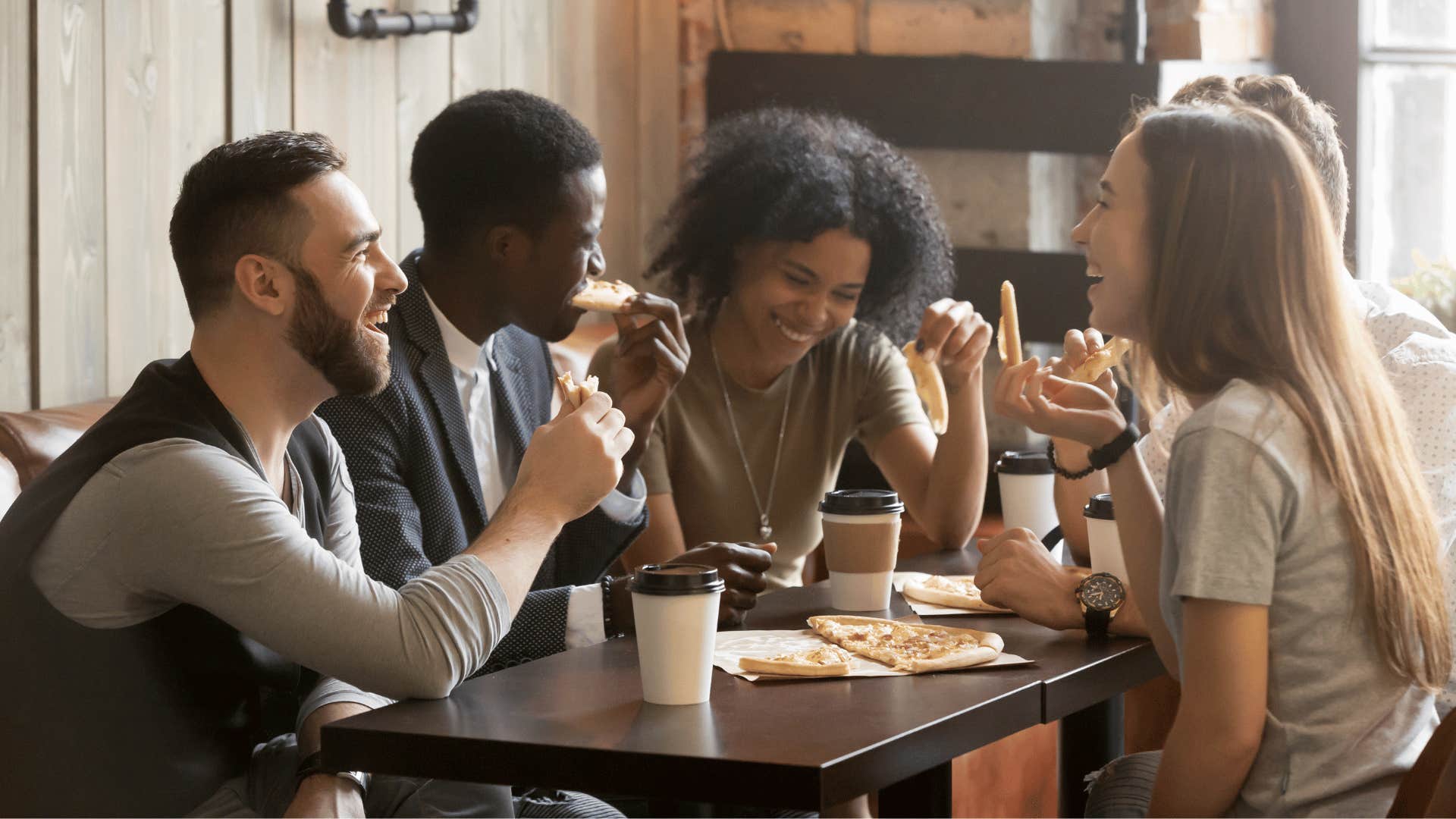 fizkes | Shutterstock
fizkes | Shutterstock
Something else socially awkward people do when they feel uncomfortable talking to you is asking, “What should we talk about?” A socially awkward person might struggle with engaging in small talk, so they wonder out loud what they should talk about instead of letting the conversation unfold more naturally. Social anxiety can manifest as physical symptoms, like having a rapid heart rate, becoming short of breath, or having your mind go blank, which might make someone ask what they should talk about.
Someone who experiences social anxiety often struggles to speak up in group settings, but they might also have a hard time with one-on-one conversations. Being socially awkward is expected in someone who was isolated from their peers or was a lone wolf in childhood. As a result, they might not know how to let a conversation flow smoothly.
5.‘I hope I’m not bothering you’
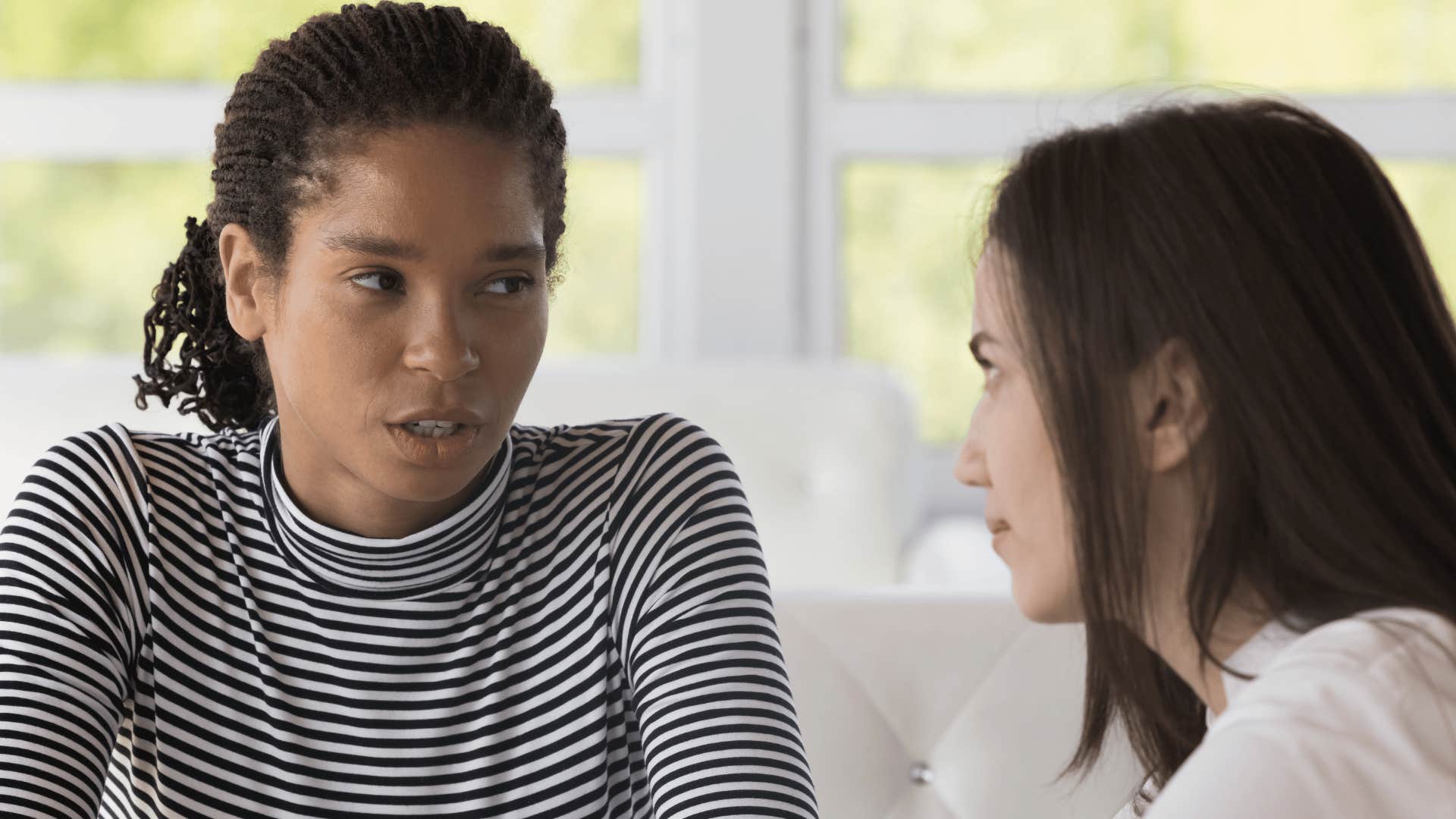 fizkes | Shutterstock
fizkes | Shutterstock
Often, socially awkward people say, “I hope I’m not bothering you,” during routine interactions because they’re scared to speak up and say what they need. Someone’s social anxiety can make everyday routines especially difficult, like setting up appointments over the phone, ordering a meal at a restaurant, or even asking someone for help.
They might couch their fear that they’re imposing on someone else’s time or energy by saying, “I hope I’m not bothering you,” even when saying that isn’t at all warranted. Because socially awkward people have difficulty navigating fundamental interactions, they constantly worry about being “too much,” so they over-apologize.
6.‘I should stop talking now’
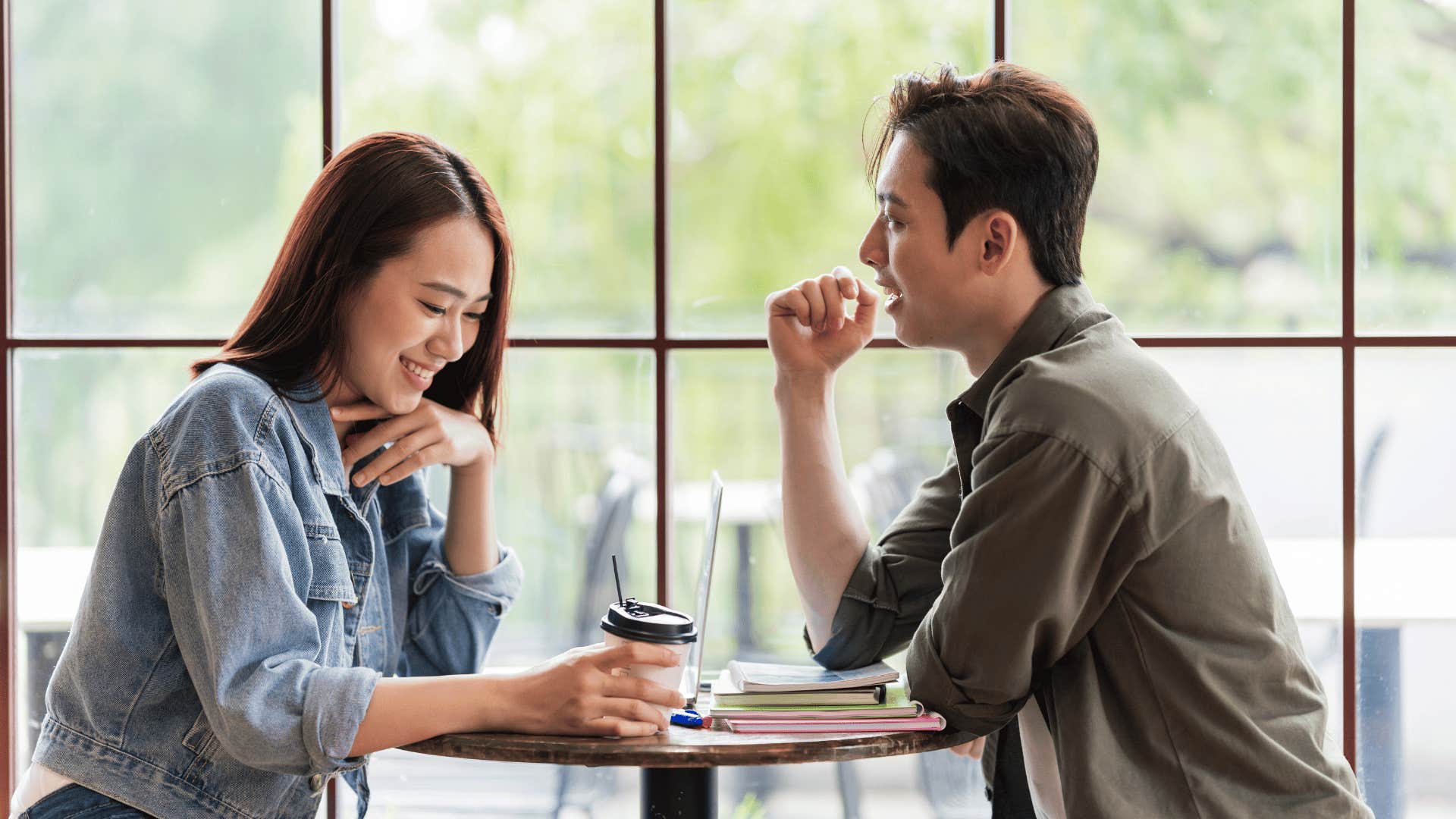 TimeImage Production | Shutterstock
TimeImage Production | Shutterstock
It’s normal for conversations to ebb and flow. There’s nothing wrong with going quiet during a conversation, but someone socially awkward might have a more challenging time with extended silence than others. They might try to fill the gaps in conversation with mindless chatter, which can make them feel more awkward than usual. This results in them fumbling over their words and saying they should stop talking.
Socially awkward people say, “I should stop talking now,” when they feel uncomfortable talking to you, as a way to catch themselves from saying something they deem unnecessary or embarrassing. They have a heightened fear of saying the wrong thing, which means they might stop short or trail off in a conversation, then try to make the silence feel less tense by declaring that they’re done talking.
7.‘I forgot what I was going to say’
 Ground Picture | Shutterstock
Ground Picture | Shutterstock
Someone who has social anxiety often experiences the sensation that their mind goes blank, and they lose the thread of what they were about to say. Socially awkward people say the phrase “I forgot what I was going to say” when they feel uncomfortable talking to you because their nervousness leads to physiological distress. They might blush, their hands tremble, and they might have trouble making eye contact.
It’s not uncommon for socially awkward people to get caught up in the maze of their minds, making it hard to follow a conversation’s natural path. They’re so focused on saying the right thing at the right time that they can’t hold onto the conversation's flow, making them forget what they want to say.
8.‘I don’t know how to answer that’
 fizkes | Shutterstock
fizkes | Shutterstock
A phrase that socially awkward people say when they feel uncomfortable talking to you is, “I don’t know how to answer that,” especially when sharing something vulnerable about themselves. They get nervous that whatever they say will be deemed “wrong,” so they hold back from revealing anything. They tell people, “I don’t know how to answer that,” when they’re faced with intimate questions.
Amy Morin, a licensed clinical social worker, noted that people who have social anxiety often fall into a pattern of criticizing their social skills.
“People with social anxiety spend a lot of time analyzing their social interactions. They replay conversations in their minds over and over and scrutinize their communication. They exaggerate their flaws and judge themselves harshly,” she explained.
Socially awkward people might feel so uncomfortable with certain topics that they avoid sharing their opinions altogether, using the phrase “I don’t know how to answer that” to avoid discussing sensitive subjects.
9.‘I’m bad at small talk’
 Roman Samborskyi | Shutterstock
Roman Samborskyi | Shutterstock
Socially awkward people will say, “I’m bad at small talk,” when they feel uncomfortable talking to you in any social situation. They might assume that other people always know what to say, especially when making a first impression. Still, the reality is that most people feel nervous in new environments and worry that what they’re saying makes them stand out.
As psychologist Nick Wignall revealed, an essential part of boosting your social self-esteem is recognizing that being flawed is part of the universal human experience.
“Social anxiety breeds very well in an environment of ‘feeling different’ to others and thinking you’re unique. You are not uniquely human — just uniquely you,” he explained. “Enjoy the sense of connection that comes with knowing we’re all insecure, flawed, and weird.”
Insecurity is more common than most people think, so being bad at small talk isn’t bad.
10.‘I’m just going to go’
 Iryna Inshyna | Shutterstock
Iryna Inshyna | Shutterstock
Socially awkward people say the phrase “I’m just going to go” when they feel uncomfortable talking to you. It’s an abrupt way for them to end a conversation and remove themselves from a situation, making them increasingly nervous.
Dr. Richard Heimberg, a psychology professor at Temple University, has spent over twenty years conducting research on social phobias. He’s discovered that almost everyone has some degree of fear about social situations.
“Some people just think they are shy— that it's a personality trait— and that's just the way they are," Heimberg explained. "But...if a person starts fearing many social situations, [and as a result] lives alone or drops out of school, that's not shyness— that's an impairment.”
When people consistently step away from everyday social interactions due to their innate fear of doing something wrong, they might end the conversation by abruptly declaring, “I’m just going to go.”
By acknowledging and accepting that being socially awkward is part of the human condition, people can set themselves up for future social success and establish daily routines that calm their active minds.
Alexandra Blogier is a writer on YourTango's news and entertainment team. She covers social issues, pop culture analysis, and the entertainment industry.

